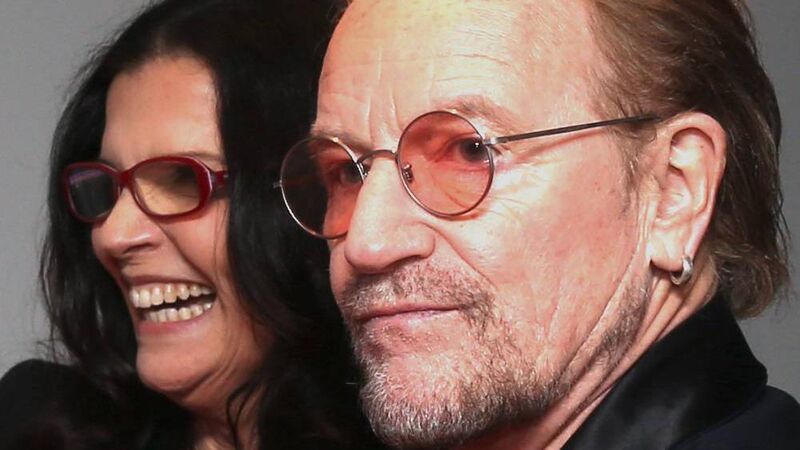Book Review: Bono gets into 40 moments of Surrender in his autobiography

Bono with his wife Ali; she effectively dominates ‘Surrender’ and he writes about her here as adoringly as he’s long done in song. Picture: Stephen Collins /Collins Photos
- Surrender:40 Songs, One Story
- Bono
- Hutchinson Heinemann, €23







